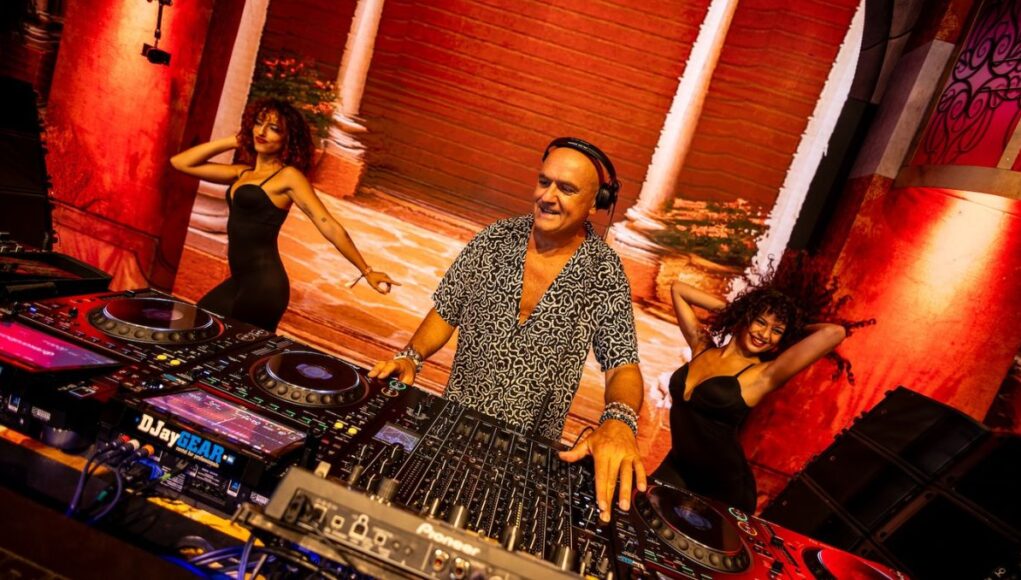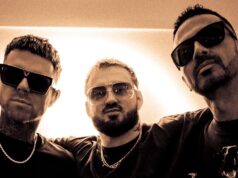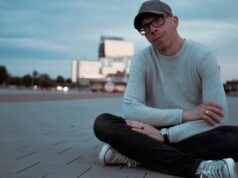STBAN’s latest single El Camino arrives via Toolroom Trax, a striking fusion of flamenco and club-focused house that brings together Josemi Carmona, Soleá Morente and James Hurr.
The track is a clear statement of intent for Flamenca Records, the label STBAN founded to explore the intersection of traditional Spanish music and contemporary electronic production. Rooted in his Spanish heritage and shaped by a Swiss upbringing, STBAN’s sound bridges worlds — not just stylistically, but also generationally, as he invites younger artists into writing camps across Spain to collaborate on new music.
With El Camino, he leans into a deep, dubby groove while giving space to some of flamenco’s most respected voices. In this interview, he discusses the collaborative journey behind the single, the growth of Flamenca Records, and how he’s building a live experience that offers something more immersive than the typical DJ set.
El Camino brings together you, Josemi Carmona, Soleá Morente and James Hurr. How did this collaboration first take shape, and what did each of you contribute to the process?
We produced the electronic basis of El Camino about three and a half years ago. It took a long time to find the right person to add the flamenco music to that base, we finally found Josemi Carmona and asked him to co-produce the track with me. He then suggested we work with Soleá Morente so a year ago we went to a studio in Madrid to produce the track. It took just over a week of work together in the studio to come with that version. Once that was produced, we decided it needed more of a “dub” emotion, so that’s when we asked James Hurr to add his skills. So El Camino really is a great example of team work, with these different producers on the track at different stages.
The single has a clear flamenco identity while also carrying the weight and drive of Toolroom Trax. How do you navigate the balance between authenticity and functionality for the club?
Authenticity for me is a very important point, that’s why we work with the best musicians in flamenco, and that’s why we can feel it in the song, even if it’s an electronic one.
Flamenca Records has been steadily growing. What is your long-term vision for the label, and how do you see it positioned within the wider house music landscape in Europe?
Flamenco electronic music is classed as part of the Latin House genre right now. I’d like to help create a new genre with our music, Flamenco House for example. We can also see that house music in general, and in particular the Latin side of house music is growing globally, and we want to be part of this growth. Our lyrics, our vocals are all in Spanish. This is what we want to establish with our label and so I hope that other producers and artists who want to create music in Spanish, inspired by Spanish culture and traditional Spanish music, can come and feel at home in the FLAMENCA Records family.
You have Spanish roots but also a Swiss upbringing. Do you feel these two backgrounds are audible in your productions, and if so in what ways?
Yes of course I have Spanish roots, and those roots give my music the warmth and the sun of Spain, but Switzerland I think gives me maybe more of the beats and the precision which is also very audible in the music, especially when we’re speaking about the electronic side of FLAMENCA.
Your live sets often include dancers, visuals and percussion. Do you see this more as a concert-style performance or as an expansion of the traditional DJ format?
My goal with the FLAMENCA live shows is to communicate the art and passion and history of flamenco through electronic music. For me it’s impossible to do that without having the dancers, the percussion and the live musicians. Those are all extremely important part of FLAMENCA’s artistic concept and also what makes it such an immersive experience for our audience.
Audiences in Germany are known for being highly focused on sound and atmosphere. How has your music been received when you’ve played here, and do you adapt your sets for that context?
We had such an amazing experience this summer at AirBeat One, a really big crowd and big emotions. I really felt how the people were totally open to listen to our music, the Spanish and Latin styles, even if those aren’t really the “usual” tastes of music fans in Germany. But of course we also try to adapt our set to give our music step by step, and not push or impose it on them, to introduce it in a natural fashion that fits each audience we play to.
Many producers today are chasing quick attention through social media moments. Your work feels grounded in tradition and craft. How do you resist the pressure of “content” and stay committed to deeper artistry?
Social media, it’s part of the game, so we have to be into it but we also want to express, and give information, on the future and the tradition of flamenco, what it is from its beginnings and its roots to what it is now, how it’s evolving, growing, and increasing in its influence. So we want to use social media to inform the audience on what flamenco is and invite them inside it to experience and enjoy it.
With El Camino now out on Toolroom Trax, what are your next steps, both personally as an artist and for Flamenca Records as a platform?
So the next steps for FLAMENCA is just to continue to produce music. We are already organising some new tracks, we have new writing camps coming up with younger artists in Cortoba, we’re also continuing with our camps in Seville and in Madrid. We’re always looking to meet the right artists who are open to making the fusion with us as electronic producers. And for FLAMENCA Records, we want to open our arms to new artists, new producers, who want to build something very special and unique with us.








